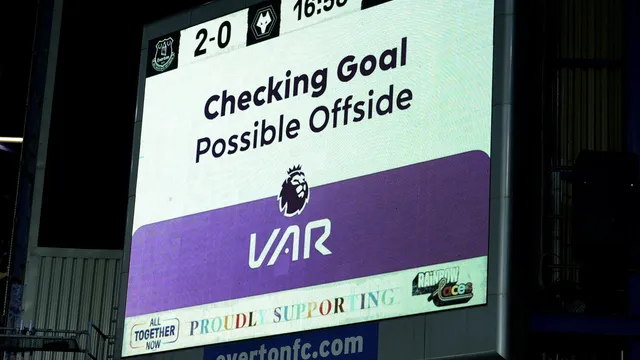
FA Cup embraces semi-automated offside technology despite previous doubts
2025-02-13 13:45- The FA Cup will utilize semi-automated offside technology in seven of eight fifth-round ties.
- The technology, developed by Genius Sports, seeks to enhance VAR check efficiency by reducing decision-time.
- Premier League aims to implement the technology later this season, demonstrating progress amid earlier doubts.
Express your sentiment!
Insights
In early 2025, the FA Cup rolled out semi-automated offside technology at its matches, marking this as the technology's debut in English football. This notable introduction was set for seven of the eight fifth-round ties, with the lone exception being the match between Preston and Burnley. The technological implementation aims to enhance the efficiency of Video Assistant Referee (VAR) checks, with Premier League stadiums scheduled to host the ties utilizing this innovative system. This technology, developed in partnership with Genius Sports, intends to significantly reduce the time spent on offside evaluations by approximately 31 seconds on average. A public statement highlighted that VAR would be utilized in all matches, indicating the ongoing commitment to enhancing officiating standards at this level of competition. Initially, there had been plans to implement the system in the Premier League after international breaks in the previous autumn, but varying deadlines and hesitations led to delays until this point. Tony Scholes, the chief football officer of the Premier League, discussed the challenges faced earlier that season but noted significant progress in the functionality and accuracy of the newly adopted system over the previous months. Despite adverse reactions during the initial deployment of VAR technology, there was an optimistic outlook regarding the semi-automated system's integrity and its alignment with existing offside rules. The introduction of this technology seeks not only to streamline the officiating process but also to provide fans and stakeholders with improved clarity and fairness during matches. The Premier League expresses intentions to incorporate similar technologies in their matches later in the season, reflecting a broader trend toward integrating advanced tech solutions into sports officiating.
Contexts
The implementation of Video Assistant Referee (VAR) technology in football officiating has significantly altered the landscape of the game, aiming to enhance the accuracy of decisions made during matches. VAR was introduced as a means to review critical events such as goals, penalty decisions, direct red cards, and cases of mistaken identity, thereby seeking to minimize human error in officiating. While the goal of VAR is laudable, its integration into the traditional flow of the game has been met with mixed reactions from players, officials, and fans alike, as it balances technological intervention with the inherent unpredictability of live sports. As such, the ongoing discourse surrounding VAR is crucial in understanding its long-term implications for football officiating and the overall enjoyment of the game. The first major impact of VAR technology has been on the accuracy of refereeing decisions. Statistically, studies have shown that VAR has successfully overturned a number of incorrect calls, which emphasizes the system's potential to ensure fair play. For instance, according to various reports, the rate of successful calls in leagues that implement VAR has seen a notable increase, showcasing how video technology can aid officials in making more informed decisions. However, the efficacy of VAR depends on the competence of the VAR officials overseeing the review process, highlighting a critical area in which training and communication play a vital role. This brings into focus the need for continuous development within officiating standards to maximize the benefits that VAR technology can provide. Another crucial aspect of VAR's impact centers around the time it takes to make decisions, which often leads to disruptions in the pace of the game. Players and supporters alike have expressed frustration with prolonged stoppages for review, which can affect the momentum of matches. The integration of VAR has led to longer durations for the average match, raising questions about the balance between accuracy and the flow of play. Consequently, football governing bodies have been prompted to refine the implementation of VAR protocols to minimize interruptions, including the use of visual indicators in stadiums, so that fans are kept informed and engaged during the review process. Finally, VAR has induced a cultural shift within football, as players, coaches, and fans adapt to a new norm of officiating. The mentalities of players are changing as they recognize the presence of technology, influencing their actions on the pitch. While some players may feel emboldened to act more theatrically, knowing that VAR could catch their misleading conduct, others have begun to strategize around the system in hopes of gaining advantages. Moreover, the technology has altered fans' experiences in stadiums and at home, as they navigate between the emotional highs and lows of uncertain outcomes during VAR reviews. Ultimately, the full extent of VAR's impact on football officiating will continue to evolve as technology develops and the community adapts, making it a vital area of ongoing research and analysis.